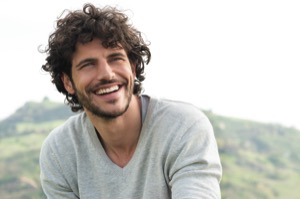
This past weekend, I attended the first annual Finding Freedom LGBTQ Symposium in Palm Springs, sponsored by Foundations Recovery Network. A wonderfully diverse group of professionals from across the country gathered together to explore best practices in addiction treatment for co-occurring disorders. We met and contributed our insights and observations to the unique issues facing the LGBTQ community who are seeking help for co-occurring disorders.
As I reflect on the weekend and how I as a treatment professional can best help the LGBTQ community, my thoughts turn to the resiliency of our community. Resilience is about our capacity as humans to tolerate and move on with strength after experiencing an adverse event. Resiliency is about how we each have the ability to learn, renew and recreate ourselves in the face of change, challenge and opportunity. It is about adapting and moving with hope toward the future. Every time an individual in the LGBTQ community overcomes an adverse event, it adds positive self-esteem and builds the confidence needed to overcome similar experiences in the future. So many LGBTQ people have been the brunt of discrimination, external and internal homophobia, bullying and rejection. These same individuals are also towering examples of resiliency as they exhibit courage and bravery to stand tall and proud despite adversity. Resiliency is about bouncing back, surviving adversity and growing stronger.
Far too many of our community have silenced their courage with the addictive use of substances. Substance use often starts out as recreational use to temporarily enhance mood and ease social anxiety. For the addict and alcoholic, the loss of authenticity and loss of self becomes more and more apparent as their use escalates. Resiliency is what has carried them past the torment of addiction. I encourage you to take an inventory of your own character traits that reflect the powerful reality of resiliency in your life.
First, let’s take a look at self-awareness. How well do you know yourself? Has your substance use gotten in the way of knowing who you really are? The character traits of determination and vision teach us about our ability to focus on setting goals for the present moment and future. As an LGBTQ community and as individuals, it is important to not allow an unhealthy distracted lifestyle to drain our determination and rob the vision from so many unique people in our community. Daily life can be complex and, at times, downright chaotic. The character trait of organization brings value and order to life. Addictive use of substances empties our lives of healthy relationships. Healthy relationships give us the hope and positive experience needed to survive and prosper.
For individuals in early recovery, building new relationships can be very challenging as they leave substance-using friends. Forging new relationships and negotiating life on life’s terms is a new experience. The personal interactions taking place in early recovery begin with new friends who understand and support a balanced sober lifestyle. Gaining trust in these interactions is a boost to self-esteem and generates confidence to remain drug and alcohol free.
The characteristic of how we go about solving problems is so important in recovery. Problems and challenges in life can no longer be avoided and swept under the rug. I teach that every problem has a solution. Resiliency guides us to solutions that enhance our lives and bring a sense of peace.
Lastly, self-confidence is attractive and draws others into our lives. The self-confident person owns his or her resiliency and reinforces others on the recovery journey.
Addiction is at epidemic proportions in our society and in our LGBTQ community. Take a moment to reflect on how the character traits discussed above have perhaps been compromised in your life or the precious life of someone near to you.
There is always hope to return to the life you had prior to substance abuse.
Patricia Bathurst, LMFT, is the director of Foundations San Diego, an outpatient recovery facility located in Hillcrest at 3930 Fourth Ave., Suite 301, San Diego, CA 92103. Ms. Bathurst is a certified advanced addiction counselor as well as a licensed marriage and family therapist. Questions for Pat? Contact Foundations San Diego at 619-849-6010.











